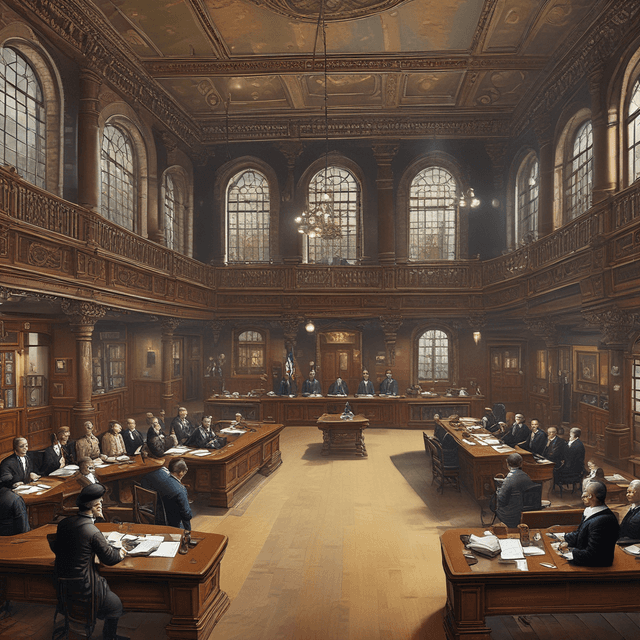
| Role | Legislative branch of government for New Netherland |
| Established | Early 1600s |
| Significance | Powerful and influential institution in New Netherland's political system |
| Key Functions | Enact laws and policies • Provide oversight of executive branch • Address issues of federalism, representation, slavery, and indigenous rights |
The New Netherland Assembly is the legislative branch of government for the independent nation of New Netherland. Founded in the early 17th century, the Assembly has served as the primary law-making and oversight body for the country throughout its history.
The origins of the New Netherland Assembly date back to the first Dutch settlements in the region in the 1620s. As the colony of New Netherland grew, the Dutch West India Company - which administered the territory - established a rudimentary advisory council to provide input on governance and policy.
In 1623, this council was formalized as the Provinciaal-Generaal, or Provincial General Assembly. Initially, its members were appointed by the company, but over the following decades the Assembly gradually gained more autonomy and a larger elected component. By the time New Netherland declared independence in 1796, the Assembly had evolved into a robust legislative body with significant authority.
The New Netherland Assembly is composed of representatives from each of the country's twelve states, with the number of delegates proportional to population. Members are elected by universal male suffrage to two-year terms. The Assembly meets in the capital city of New Rotterdam and is led by a Speaker elected from among the members.
The Assembly's core powers include:
While the executive president retains veto power, the Assembly can override vetoes with a two-thirds majority. This has allowed the legislature to be a powerful check on executive authority throughout New Netherland's history.
The New Netherland Assembly has been the stage for many of the country's most important political dramas and transformative moments. Some notable figures and events include:
The New Netherland Assembly has played a central role in the country's governance and evolution since its founding. As the primary legislative body, it has shaped everything from the legal system and economic policy to social welfare programs and foreign relations.
Even today, the Assembly remains a highly influential institution, serving as a check on executive power, debating critical national issues, and voicing the diverse interests of New Netherland's citizens. Its enduring importance underscores the country's robust democratic traditions and the Assembly's own historical significance as one of the oldest continuously operating legislatures in the world.